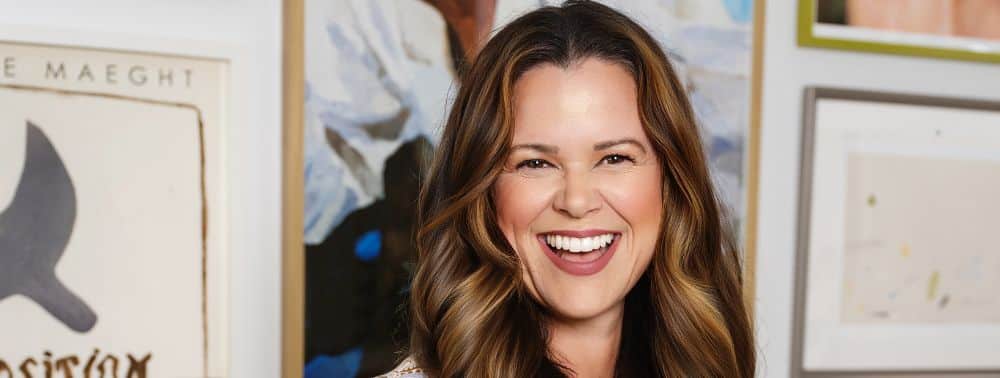Podcast: Play in new window | Download
Have you ever been given the advice to just stop caring about what other people think of you, only to think, “Yes, that would help, but I don’t know how?”
As humans, we are wired to be accepted by the tribe. At one point in our evolution, being rejected by other people literally meant death. So, if you struggle with the torment of other people’s thoughts and opinions, and it’s impacting your ability to experience the world in the way you want, know that it’s coming from a healthy place. And there’s a lot we can do to work on our fearful brains.
Tune in this week for a deep dive into why it’s so challenging to let go of what other people think, and most importantly, how to take charge of your brain and redirect it in a more useful way. You’re hearing coaching with real-life challenges on this topic, and my two-fold approach for managing our fear-based brains.
I’m inviting you to our brand-new podcast hotline where you can call in and ask me a question. Call 888-HI-JODY-M or 888-445-6396 to leave me your question, and I can’t wait to address it right here on the podcast!
If you want to take what you’re learning on the podcast and take it to the next level, implementing these lessons in your life, you need to join The Lab! It encompasses all the best parts of Be Bold while creating an environment that better serves the audience of this podcast. Click here for more details.
What You’ll Learn on this Episode:
- Why it’s challenging to let go of what other people think of you.
- How to take charge of the fear-based part of your brain.
- A two-fold approach for letting go of other people’s thoughts and opinions.
Mentioned on the Show:
- Coaching changed my life and I’ve watched it change the lives of thousands of men and women since. But is it right for you? You’ll only know by giving it a try. Try it out today by clicking here.
- I’ve written a book to introduce thought work in a way children will understand called Carl and Sophia and Your Amazing Brain, illustrated by my talented daughter Macy!
- Come check out Be Bold
- Follow me on Instagram or Facebook!
- Grab the Podcast Roadmap!
- Better Than Happy: Connecting with Divinity through Conscious Thinking by Jody Moore
- Follow my brand new business Instagram account where I’ll be sharing my business tips for all you entrepreneurs!
- Check out this episode on my YouTube channel
Welcome to episode 449, Coaching with Jody: How to Let Go of What Other People Think.
Have you ever been given the advice, just stop caring about what other people think of you and thought to yourself, yes, that would help a lot but there’s just one problem, I’m not sure how. In fact, I’ve tried to do this in the past but seems to be a problem still. Well, I’m so thrilled to bring you today’s episode because it’s going to be a deep dive lesson in just why that’s useful and okay to do but the how. And we use real coaching with real people and real challenges to go deeper. Let’s do this.
Welcome to Better Than Happy. I’m Jody Moore and I’ll be your coach today.
Hey, everybody. Welcome to today’s episode. I have a great coaching segment. I think it’s going to be relevant to so many of you listening if you ever find that you want to work on not letting other people’s thoughts and opinions of you affect you so much. It’s a challenging thing to do. It is wired within us to be accepted by the tribe. That is a primal need and desire we have. It comes, according to psychologists, it comes from our basic primal need to survive.
At one point it was necessary that we live in tribes. Maybe we would say it still is even today, but certainly it really was at one point. If you were rejected from the tribe, then you may not have warmth, you may not have safety, you may not have access to food, you literally may die. Not to mention we need one another to reproduce and further our species. So it’s really a primal thing.
So if you struggle with this, and we all do at times, but if you struggle more than what you think is reasonable and it’s impacting your ability to experience the world the way that you want to or to pursue goals the way that you want to. Then know that it’s coming from a very healthy place. And there’s a lot that we can do to work on that. And that is one of the things I love about coaching is, it takes these things that we all know are good advice and it gives you real tools for knowing how to do it.
It’s not an instant fix, and it’s not even a permanent fix. It’s not okay, I’ve done that, now, I don’t care what people think of me or I don’t let it affect me as much. It’s okay, I know how to go in and manage that fear based part of my brain. I know how to answer that part of my brain. I know how to redirect my brain in a useful way so that if it gets out of hand, I can sort of take charge of my fear based primal brain. That’s what we want to do.
We want to have the skill of taking charge of your primal brain. And that requires that we slow everything down, we look at what’s really happening in there. And we then have some tools and things that we can go to, to practice getting better at again managing that lower brain. So you’re going to see that in today’s coaching episode.
I want to thank the woman who got coached on this call. She knows who she is, and I’m so appreciative of her for being vulnerable and willing to get coached in this way because it will help all of us. Please enjoy.
Jenna: Okay, I would love some help with my bullying brain. It is so harsh. It’s funny because I’ve done a lot of body image work. And so I am actually really good at not bullying my body, but I feel like it’s switched to other things. And especially I’ve noticed when it’s in front of other people. And [inaudible] I pride myself, well, not pride, but I used to, I mean I care what other people think but that never influenced what I did. And so it’s just surprising to me that it seems to care so much about what other people think of me and I’m just trying to figure out how to calm that down.
Jody: Okay, can you give me an example when you noticed this?
Jenna: So just recently, well, every time I bear my testimony in church. I sit down and go over all the things I have said wrong and the things I brought to say and how that sounded dumb and that probably didn’t make sense. And that probably made people think this about me and it just goes over and over and over for weeks.
Jody: Okay, you get up, you say a few things at the mic in church, bear your testimony. And then you sit down and you start running through the list of things you said wrong. And you said this is about what it might make other people think.
Jenna: I feel like that’s it because it usually happens the worst if it’s in front of [crosstalk].
Jody: Yeah, that makes sense. So what are we afraid of, what might people think?
Jenna: That I’m full of myself. That I’m dumb. That I don’t know what I’m talking about. That, that didn’t make sense. What’s she talking about? Trying to think specifically. This last time I said, in the name of Jesus Christ, Amen. And then because it was automatic and I’m like, “Oh, did I say that right?” I turned to the bishop and I’m like, “Did I say that?” Anyway, so there was just kind of this embarrassing, I didn’t even know how to end it.
Jody: Okay, and so people might think what?
Jenna: She’s stupid. She doesn’t know how to end.
Jody: I believe she didn’t know that.
Jenna: She doesn’t know how to end a testimony, or I don’t know, which logically I know they most likely aren’t, but [crosstalk].
Jody: Yeah. Okay, so there’s two things I like to do in a situation like this, where the brain is going crazy of what maybe people think. And sometimes, first of all, my guess is, nobody came up to you afterwards and was like, “Pretty full of yourself up there, don’t you think?” You don’t have any valid proof, actually, that anyone thinks this. It’s all in your head. But sometimes we do have valid proof.
At least, if you’re like me and you’re posting things on Instagram or whatever. Sometimes people downright tell you that they think you’re full of yourself and you’re dumb and you don’t know what you’re doing. So just for everybody listening, whether you have proof or not, it’s the same approach and it’s twofold. First of all, I like to remind my bullying brain that there are also probably a lot of lovely thoughts that people might have had about me when I got up there.
Jenna: Yeah, more likely.
Jody: What are some of the more pleasant, positive thoughts that people might have had about you?
Jenna: Well, I mean, several people actually did thank me for bearing my testimony and said that they really appreciated it.
Jody: Why do we thank each other? This is an interesting thing we do in the LDS church. Thanks for your testimony. And I think it’s great. Why do we do that? What do we mean by thank you?
Jenna: I bore my testimony about the Book of Mormon and Scripture. And so maybe it reminded them of the importance of reading the Book of Mormon regularly here.
Jody: It’s because they [crosstalk] in some way, feel something or think something or remember something or consider something that they find to be useful. That was interesting. I haven’t thought about it that way or that’s a good reminder or something, or you might have helped them feel the Spirit by sharing what you shared. So they might have thought that, what else, positive things might they have thought?
Jenna: They might have just been glad I went up so that they didn’t feel like they had to go up or somebody [crosstalk].
Jody: Thanks, Jenna, now I don’t have to feel like I should stand up and say something. Yeah. Notice how challenging this is for you. This tells me we’ve got some work to do because you rattled off five negative ones easily. And they’re all actually kind of a stretch to think that people are actually thinking that but we’re going to come back to that in a minute.
Today’s episode is brought to you by The Lab. If when you hear these coaching episodes, you find yourself thinking, huh, I wonder what Jody Moore would say to me about my challenge. Come and join me in The Lab. A $59 a month gym for your mental and emotional health where we experiment with the concepts from the podcast until we can fine tune the way that you can use them to create any result you want in your life, yes, any result is possible. Join me in The Lab today at jodymoore.com/thelab.
We’re currently accepting new members, and I think you should be one of them. That’s jodymoore.com/thelab. I’ll see you there.
The positive ones, two things neither of which were actually even really about you. The negative ones are all about you. She’s so full of herself. She’s dumb. She doesn’t know what she’s talking about. The positive ones are, it made me feel good and it made me feel like I don’t need to stand up. So just let your wild imagination, because we all have wild imaginations, play in the positive side too.
I’ll tell you what I like to do. Again, if I’m coaching myself in a scenario like this, I’m like, “Yes, it could be true.” We’ll come back to this idea that there are all these negative things that could be true. But also, I bet you somebody liked what I was wearing today. Somebody probably noticed how cute my dress is. Somebody probably liked my hair. Somebody probably liked that story I shared about this thing. Somebody probably thought I sounded smart. Somebody probably liked the way I worded this thing. Do you know what I’m saying?
Jenna: Yeah, that sounds so hard. And I’ve recognized that myself that that feels like pride to me even though I don’t know it, even though I know it’s not. I think I grew up thinking to be humble you have to downplay your strengths and not compliment yourself.
Jody: Okay, this is good to know. This is what I’m saying. I’m not saying you have to walk around and tell everyone that, “Doesn’t my hair look good today?” I’m saying if you can’t go there in your mind, you’ve got some work to do on your relationship with you.
Jenna: Yeah, big time.
Jody: Most of us do, we all do, so don’t feel bad about that. Just notice, it’s so easy for me to come up with all the criticism, really challenging to come up with the positives. So that means okay, so that’s the first part. If we’re going to spend time wondering what people think at all, I’m not saying you have to, by the way.
Jenna: I know, I’d like to not even think about it.
Jody: Okay, but if the brain wants to go there for some reason, and sometimes it does because we’re tribal and it’s worried we’re going to be rejected by the tribe. It’s a primal thing. So if the brain wants to go there and go, people probably thought, you’re dumb, you’re full of yourself. You don’t know what you’re talking about. You didn’t make sense and you sound stupid. I wrote those down, the thoughts you told me. Then you’re like, maybe this is the second half of this.
We’ve got to balance it out with the positive and yeah, and also brain, don’t forget, someone might have thought I sounded smart. I’m very humble. I’m very spiritual. I had something really interesting to say and I looked amazing. I mean, do you see how we balance it out? We’re not being prideful. We’re not saying we’re better than anyone else. We’re just trying to balance out that negative brain. And then the second half is to make peace with the negative part.
And put it in a realistic perspective. First of all, it’s much more likely that the majority of the people here at church today had positive thoughts as they listened to me talk. That’s the reality. That’s what the evidence shows and that’s much more likely. But it’s possible that some of them had some of these negative thoughts that I came up with and that’s okay. I’m not for everyone. Is it true, are you sometimes full of yourself and don’t know what you’re talking about and don’t make sense?
Jenna: Yeah, I’m sure.
Jody: Alright. I mean, yeah, when my brain tells me that, I’m like, “Yeah, and they’re right, at times I can be those things.” Is it also true that you’re very humble and loving and gracious and wise and smart and gorgeous and fun and is that true also?
Jenna: Sometimes, yeah.
Jody: Yeah, sometimes I’m those things too. So this whole fear we have over what people think. It’s a fear of people seeing the real us. But the real you is amazing and lovable and smart and gracious and flawed and imperfect and messes up and forgets things. We love that version of you. If you work on loving that version of you, then when your brain’s like, “No, people probably saw this.” I’m like, “Yeah, that’s the reality.”
We don’t need to hide it. It’s actually very lovable. We’re much more comfortable in it and we connect with each other actually more often anyway through our faults and our weaknesses than through our strength. So you’re working out right now, you work out?
Jenna: Yeah.
Jody: Okay. So imagine, I want you to imagine that you see somebody working out, who, for whatever reason, your guess is they haven’t worked out for a really long time. They don’t know how to use the machines. They seem uncomfortable. Maybe they’re in the weight room using the machines wrong. What’s your thought about that person?
Jenna: Well, good for them for being here and I want to help them.
Jody: It’s never, she’s so stupid. She doesn’t even know what she’s doing. And yet that’s what we think. We’re like, “I can’t go do something where will people think I’m”, well, okay most people actually think good for her. That’s awesome. It’s impressive that she’s out here doing this and she’s going to figure it out and maybe I can help her. We’re never like, “She’s so dumb and full of herself.” We only do that to ourselves.
Now, occasionally there is someone who has a great deal of pain or trauma or fear that they operate from who does think that. But okay, don’t live your life for those people.
Jenna: It’s more just learning how to turn it off because logically I know all that but it’s just my brain will not stop tormenting me in those moments.
Jody: Well, that’s why I say it’s primal. It’s your primal need to not be rejected by the tribe. So instead of trying to turn it off, just acknowledge it. I just kindly, when my brain does that, I’m like, “Yeah, it could be true. Somebody might be thinking that and it’s okay, I’m not for everyone, but also somebody might be thinking this.” And I just try to keep the balance and overall it comes down to what you think of you. That’s what this is really about.
So where I always come back to is, I love you, Jody Moore, even though it’s true, sometimes you’re dumb and you say the wrong thing and you can be kind of full of yourself. You’re also very wise, and generous, and kind. And I love all of you. And we’re just going to keep going. Tomorrow’s another day. Let’s go. Do you know what I mean? When you can do that piece, then what other people think doesn’t have to be so. It sounds like you’ve done some of that work too.
Jenna: Yeah, I think I could definitely spend more time on the good things about myself, [crosstalk] when that does happen because I don’t do much of that.
Jody: Yeah. Okay. You know what to do. Alright, thanks for coming on girl.
If you find the podcast to be helpful you’re going to love The Lab. In Better Than Happy: The Lab we experiment with applying all of it in your real life. Whether you’re in the middle of a challenge and ready for some relief or you’re ready to commit to pursuing your dream goals and making them a reality, come join me in the lab at jodymoore.com/thelab. That’s jodymoore.com/thelab.
Enjoy the Show?
- Don’t miss an episode, follow on Spotify, Apple Podcasts, Google Podcasts, or RSS.
- Leave us a review in Apple Podcasts.








